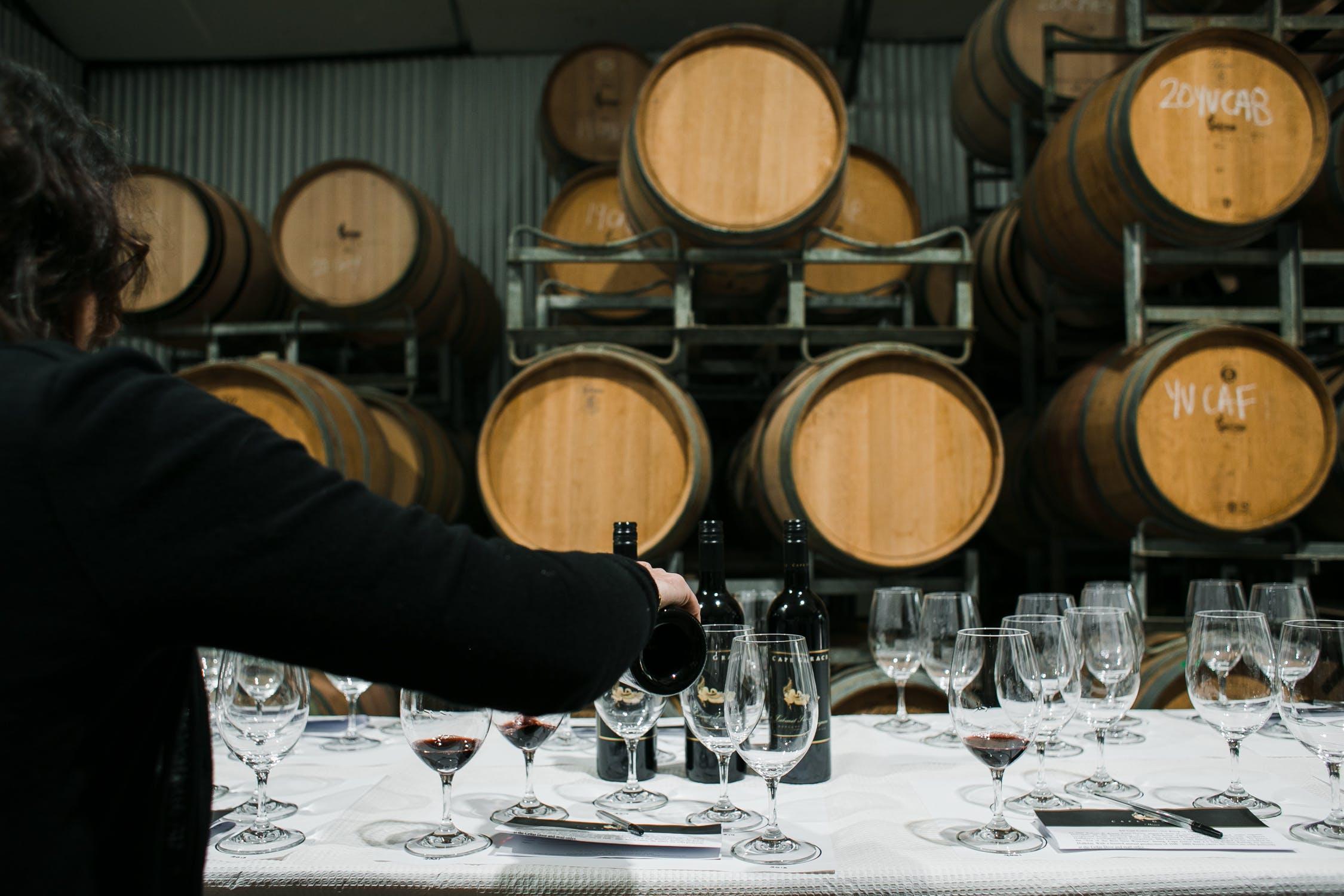Technology, tourism, and trade: Investing in the future of wine professionals
The wine industry provides an undoubtedly significant economic contribution to Australia, right from grape to glass. Contributing over $45 billion to the national economy and supporting upwards of 160,000 jobs*, the global wine industry is set to continue growing and evolving in the face of new technology and changing socio-political relations.

To meet the needs of the changing business landscape, wine educators need to provide a framework where future wine professionals can explore the key issues facing the industry and form part of an agile workforce, creating innovative solutions to complex global challenges. One such challenge that must be addressed by current and future wine professionals is portfolio diversification.
“As Australia is a highly export-oriented industry, we need to diversify our portfolio, enabling the industry to become more resilient to external shocks"Associate Professor of Wine Business, Dr Armando Corsi
Recent tariffs introduced on Australian wine have reminded the industry of the importance of portfolio diversification. National projects are now underway to facilitate this; the South Australian Wine Industry Association has piloted a program to help support wine producers engage emerging South-East Asian markets, providing market insights and in-country business guides. Whilst Australian wine exports have overall slowed down in 2020, figures show that Australian wines are at a 10 year high in European markets, with the British increasing their consumption in 2020 by 30%. Growth has also been recorded in North America and Oceania.
Closer to home, more Australians are getting behind the industry, due to a ban on international travel causing a boom in domestic tourism. Tourism operators have seen an increase in the number of people visiting cellar doors and wine regions in 2020, boosting the local economy in many regional towns. In promising news for cellar doors and vineyards, 3 premier wine regions, including SA’s own McLaren Vale, were named in the Top 10 Town of the Year Awards by Wotif, demonstrating the growing appetite for wine related tourism.
Renewed interest in regional travel has also led to the re-invention of the cellar door experience. “There has been a change in business models with a larger focus on direct to customer sales, increasing the need for maximising the cellar door experience.” Says Dr Rebecca Dolan, Program Director for Wine Business. With interest growing, many wineries are now charging for tastings, allowing them to offer a more structured and personalised experience. Changes to capacity and social distancing have also seen wineries implement booking systems, assisting with the management of crowds as well as stock and staff planning.
Online booking systems are not the only digital tool being wielded by wine professionals. Responding to rapid developments in technology and the demand for digital experiences, wine brands are exploring new customer touchpoints to engage in the virtual realm. Helping wine brands deliver engaging online experiences, Wine Communicators of Australia developed a 3 part webinar series in conjunction with the Department for Trade and Investment, providing step by step instructions on how to craft professional online tastings. Looking to stand out from the virtual crowd, Oregon based Winery Abacela disrupted the classic pairing of cheese and wine, offering online pairing sessions with jerky and Tempranillo. This clever pairing ensured the brand stood out in the online market place and added a quirky twist to an increasingly common virtual experience.
On the back of online experiences, e-commerce wine sales are expected to keep on growing in 2021, with many wine labels focusing on their websites as another tool to interact and engage with customers. These direct-to-consumer (DTC) sales allow brands to involve customers in storytelling, increase direct profits and highlight the need for developing an e-commerce strategy to remain competitive in the online marketplace.
The increase in DTC online sales has also opened further opportunities for innovations in packaging. With the onslaught of “at-home tastings”, wine brands have introduced miniature sample bottles for easier delivery, which has the potential to increase the reach of brands outside of bricks and mortar retail. Other formats are also growing in popularity, such as wine in cans, a format which helped a large wine festival like Pinot Palooza to reach hundreds of customers at time when public events were banned.
Innovation has also been seen in the labelling of wine, which is especially important as a recent study found 40% of Australian's name label appeal as an important factor when choosing wine. Capitalising on this, South Australian wine label Angas and Bremer recently introduced a clever campaign that encouraged consumers to colour in their wine labels. In the midst of lockdown, the key messaging behind the campaign was to “add a little colour into your life”. This new type of customer engagement focuses on how the customer experiences the product through the packaging, which is an important aspect of branding.
The changing landscape of the global wine industry has created a need for a new breed of wine professional. Education providers need to broaden the scope of wine education to include business courses that embrace emerging digital trends and focus on supply chain and trade issues as well as wine branding and retailing to meet the needs of the evolving market. With a recent Seek report finding wine related roles to be the third fasting growing area in the agriculture sector, and commanding the highest salaries in South Australia, there has never been a better time to start a career in the wine industry.
The University of Adelaide is one step ahead, offering specialised wine business programs which address the changing nature of the industry, supported by cutting edge research and input from industry leaders. For more information on our program offerings or research capabilities, please visit our wine business website to get in touch with our team.
*AgEcon Plus Consulting, 2019, Economic Contribution of the Australian Wine Sector
Study
We offer a range of business related degrees, enabling students to choose their own path and become career ready.

